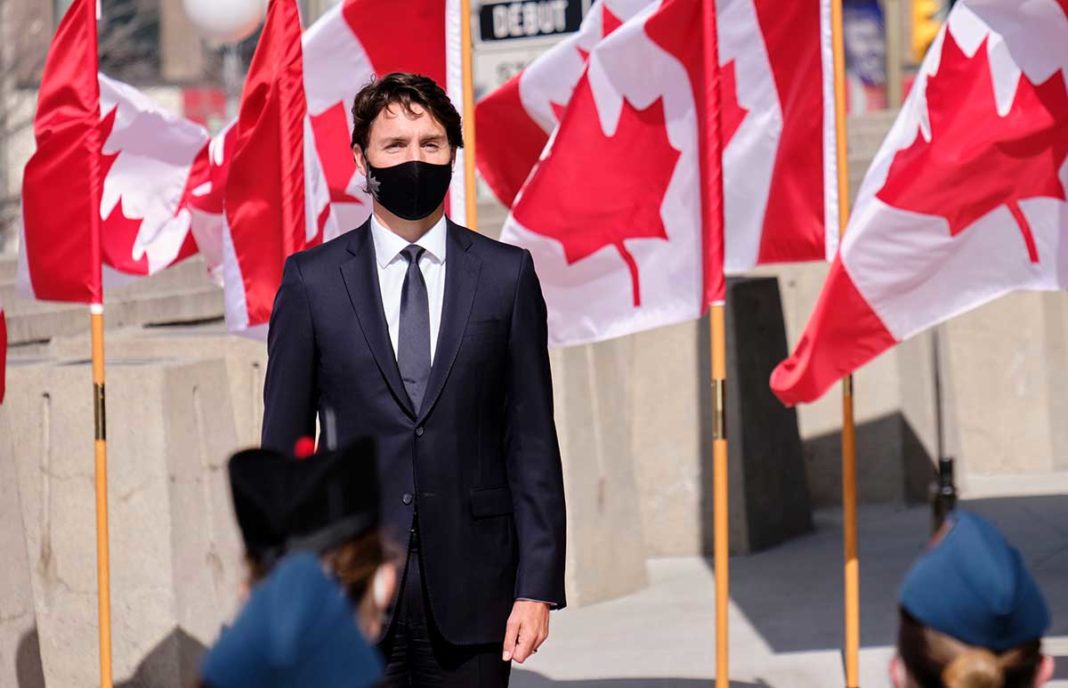OTTAWA – The nation, or at least the eastern portion of the country, heaved a collective sigh of relief when the federal NDP announced that they would support the government following the September 23 Throne Speech. The nation was holding its breath following the news that the Conservative Party under new leader Erin O’Toole and the Bloc Quebecois had no intention of supporting the speech.
A no confidence motion is a statement or vote about whether a person in a position of responsibility in government is no longer deemed fit to hold that position. When a government fails a vote of confidence in Parliament, it falls.
The confidence vote traditionally comes in the form of an Official Opposition amendment to the Throne Speech. The Conservative motion would have the House express its regret over what the Conservatives frame as major shortcomings in the speech: Those alleged shortcomings include the government’s failure to approve and deploy rapid COVID-19 testing kits, an accusation of neglect of Western Canada, the federal Liberals’ supposed reluctance to stand up to Communist China and, as to be expected, the Liberals’ refusal to provide “adequate transparency” on the WE Charity controversy. That motion was doomed to defeat when the NDP indicated they had negotiated a temporary peace treaty with the governing party. The Liberal minority government needed one of the opposition parties’ support in order to survive the vote.
Although Prime Minister Justin Trudeau was pilloried by the opposition parties for not consulting with them leading up to the Throne Speech, the eventual support of the NDP was apparently brokered by an agreement to raise the pandemic relief funds from $400 to $500 and instituting paid sick leave provisions.
Thus it was that the actual first test of confidence came in the form of the government’s proposed legislation authorizing new benefits for workers left jobless or underemployed by the COVID-19 pandemic. All electoral sabre-rattling was put aside when that legislation passed through the House unanimously. Although the bill was delayed by procedural wrangling on the part of the Conservatives and the Senate had its own stumbling blocks set up to delay the final passage due to the senators’ unhappiness with not being able to conduct their normal work, the measures were in place in time to backstop those struggling with the pandemic economic fallout.
As a parliamentary motion, failure to gain the confidence of the House demonstrates to the head of state (in Canada, the governor general) that the elected parliament no longer has confidence in (one or more members of) the appointed government. In some countries, if a no confidence motion is passed against an individual minister they have to resign along with the entire council of ministers.
Among Canadian prime ministers who have fallen in confidence votes were Pierre Trudeau in 1974, in a loss of confidence supply (confidence supply refers to budgetary matters, ie the spending of money); Joe Clark in 1979, also a loss of confidence supply; Paul Martin in 2005 through an opposition motion and Stephen Harper in 2011, also to an opposition-triggered motion resulting from a finding of contempt of Parliament. In Mr. Martin’s case the Liberal government was decimated, in Mr. Harper’s case he was returned with a majority.
Opposition parties are cautious when looking to trigger an election, and the mood of the country as measured by numerous polling firms was not rosy towards an early election outside of the western provinces.
When it comes to the mood of the provincial premiers generally, none of them seem inclined to throw a monkey wrench into the federal machinery right now either, as the need to keep federal health dollars flowing outweighs any partisan considerations—especially as the potential result would be the Liberals returning with a stronger, if not majority, mandate. (The latest 338Canada projection shows the Liberals within two seats of a majority if an election were held October 4.) Electors have not generally looked well upon those whom would trigger an early election without a very good reason. Without key support from their provincial counterparts the opposition leaders’ trigger fingers would be expected to hesitate.
Even when an opposition party votes against a confidence motion that does not necessarily result in the government falling. Careful adjustments of which legislators are actually in the house to vote can allow the government to stand, while at the same time signalling the opposition’s displeasure.
The next confidence vote will likely take place when the Liberals deliver their next budget.





